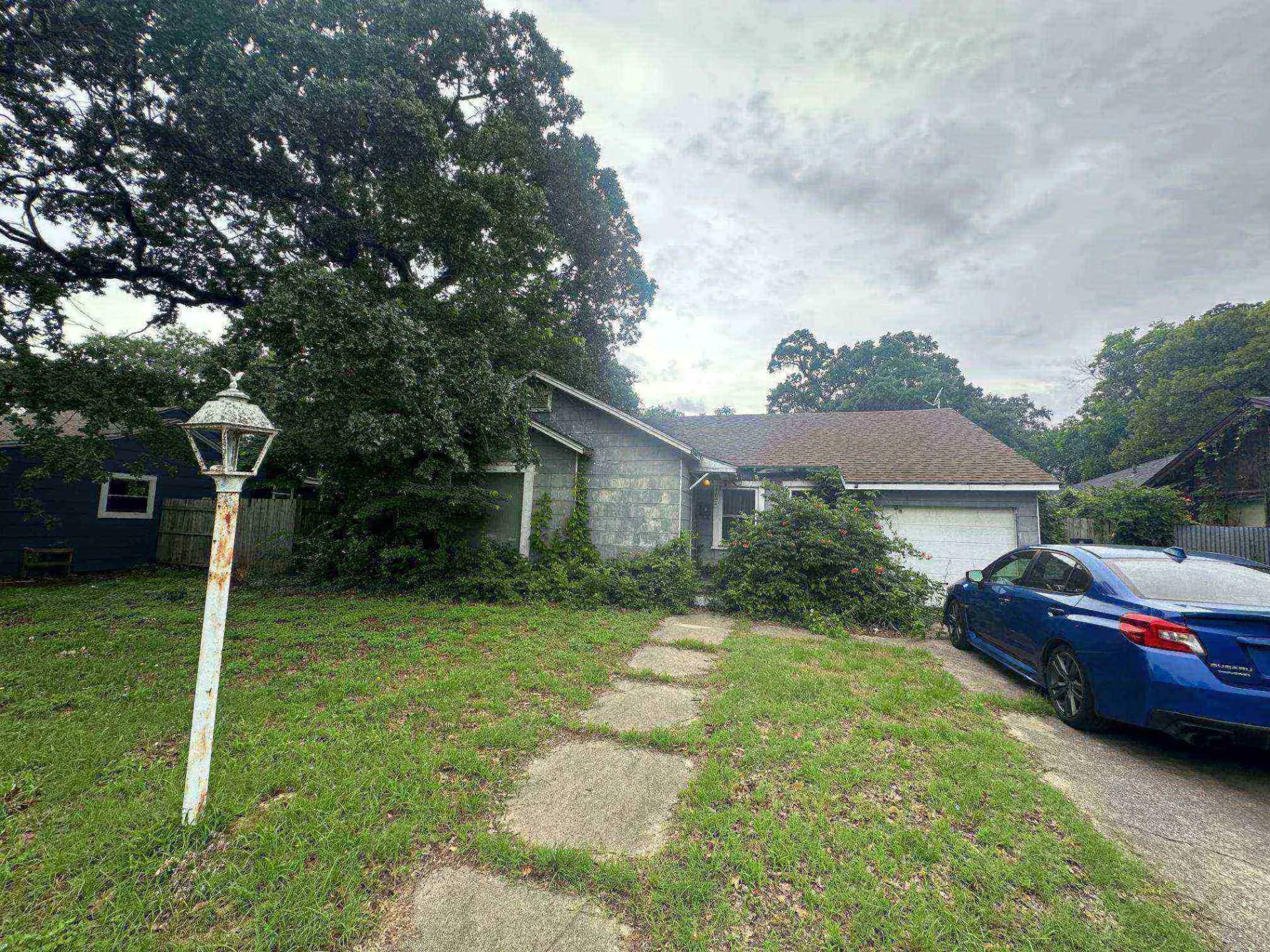Top 7 Tips to Sell Your Inherited Property Fast
Smart strategies to sell an inherited home quickly while avoiding legal delays and extra costs

Selling an inherited property can be a complex and emotional process, often involving legal hurdles and financial decisions. To sell an inherited house quickly, the primary steps include completing the probate process to legally establish ownership, understanding the tax implications such as capital gains, and preparing the property for sale. Addressing these key areas upfront streamlines the entire transaction, allowing for a faster and more efficient sale.
Navigating the sale of an inherited home requires careful planning and an understanding of the legal and financial landscapes. This guide provides comprehensive details to help manage this process effectively. With experience in handling properties in various conditions and situations, OT Home Buyers Properties offers this information to empower homeowners to make informed decisions.
1. Understand the Probate Process
Before an inherited property can be sold, the estate typically must go through probate. As explained by Bankrate, probate is a legal process where a court validates the deceased's will, pays off any debts, and distributes the remaining assets to the beneficiaries. The duration of probate can vary significantly depending on the state and the complexity of the estate, often taking several months to complete.
If there is a will that clearly names an executor, the process may be more straightforward. However, if the owner died without a will (intestate), the court will appoint an administrator to manage the estate according to state law. It is crucial to have the legal authority to sell, which is granted through documents like Letters Testamentary or Letters of Administration issued by the probate court.
2. Address Tax Implications and Financial Obligations
Selling an inherited property comes with specific tax considerations. The most common tax is the capital gains tax, which applies to the profit made from the sale. However, inherited properties often benefit from a "stepped-up" tax basis. This means the property's cost basis is adjusted to its fair market value at the time of the previous owner's death.
Consequently, you will only owe capital gains tax on the difference between this stepped-up basis and the final sale price. To establish this value, a "date of death appraisal" is necessary and should be conducted by a qualified appraiser. Beyond capital gains, be aware of potential inheritance taxes, which are levied in a few states, and estate taxes for high-value estates.
3. Prepare the Property for Sale
An inherited home may require significant preparation before it is ready for the market. This often involves the emotionally challenging task of sorting through the deceased's personal belongings. It's advisable to declutter the house, remove personal items, and give it a thorough cleaning to make it more appealing to potential buyers. According to Realtor.com, sorting through personal belongings and preparing the home can be one of the most emotionally challenging parts of selling an inherited property, especially when the home holds sentimental val
Consider a pre-listing home inspection to identify any unknown issues or necessary repairs. Addressing these problems beforehand can prevent delays during the sale process. Depending on the property's condition, you may choose to make minor updates to increase its market value or sell it "as-is" to expedite the sale.
Bonus Tip: Focus on neutral improvements like fresh paint and updated light fixtures. These small changes can have a significant impact on a buyer's first impression without requiring a large investment.
4. Determine a Competitive Asking Price
Setting the right price is critical to selling an inherited property quickly. Overpricing can cause the house to sit on the market, while underpricing can lead to a financial loss. The best way to determine a fair market value is to get a comparative market analysis (CMA) from an experienced real estate agent.
Another option is to hire a professional appraiser to get an objective valuation. Researching recent sales of comparable properties in the area can also provide valuable insight into local market conditions.
5. Choose the Right Sales Method
When selling an inherited property, you have several options, each with its own timeline and financial outcome.
| Sales Method | Description | Pros | Cons |
| Traditional Sale with a Real Estate Agent | Listing the property on the open market with the help of a real estate agent. | Can yield a higher sale price; professional guidance on pricing and marketing. | Can be a lengthy process with no guaranteed sale date; involves agent commissions. |
| For Sale By Owner (FSBO) | Selling the property yourself without a real estate agent. | Avoid paying agent commissions. | Requires significant time and effort; may be difficult to price correctly and market effectively. |
| Selling to a Cash Home Buyer | Selling the property directly to a real estate investor or a company that buys houses for cash. | Very fast closing, often within weeks; property is typically sold "as-is," eliminating the need for repairs. | The offer may be lower than the fair market value. |
6. Gather All Necessary Documentation
A smooth and fast sale requires having all the necessary legal documents in order. This preparation can prevent delays in the closing process.
| Document Category | Specific Documents |
| Proof of Inheritance and Authority to Sell | Copy of the will, Letters Testamentary or Letters of Administration, Affidavit of Heirship. |
| Property Ownership Documents | Property deed, title documents, and any records of past title transfers. |
| Financial and Tax Documents | Mortgage statements, property tax records, and the date of death appraisal. |
| Sale and Closing Documents | Purchase agreement, escrow instructions, and closing statements. |
Bonus Tip: Create a digital and a physical folder for all documents. This organization will be invaluable when you need to provide information to attorneys, agents, or buyers quickly.
7. Communicate Effectively with All Heirs
If the property was inherited by multiple people, clear and open communication is essential to avoid conflicts and delays. All joint owners must agree on key decisions, such as the selling price and the terms of the sale. It is advisable to have an honest discussion early in the process to ensure everyone is on the same page.
If disagreements arise, consulting with an attorney experienced in estate matters can help mediate and find a resolution. As suggested by SmartAsset, one option to resolve disputes is for one heir to buy out the others' shares of the property.
Things to Consider Before Making a Decision
-
Emotional Readiness: Selling a family home can be an emotional experience. Ensure all heirs are emotionally prepared for the sale.
-
Financial Needs of Heirs: Consider the financial situations of all beneficiaries. Some may need the funds from the sale more urgently than others.
-
Current Market Conditions: The state of the local real estate market can impact the sale price and how quickly the property sells.
-
Condition of the Property: The amount of work the house needs will influence your decision to sell "as-is" or invest in repairs.

Home interior representing an inherited property, showcasing a clean and comfortable space ready for potential buyers.
Specialized Solutions for Inherited Properties
OT Home Buyers Properties offers services designed to simplify the process of selling an inherited house.
-
Fair Cash Offers: Receive a no-obligation cash offer for the property in its current condition, allowing for a quick and hassle-free sale.
-
Probate Assistance: Guidance through the complexities of the probate process to ensure all legal requirements are met for a smooth transaction.
-
As-Is Purchases: Purchase of properties in any condition, saving you the time and expense of repairs and renovations.
Frequently Asked Questions
How is the value of an inherited property determined for tax purposes?
The value is determined by a "date of death appraisal," which establishes the fair market value of the property at the time the original owner passed away. This appraised value becomes the "stepped-up basis" for calculating capital gains tax.
What happens if multiple siblings inherit a property and one doesn't want to sell?
If one heir wishes to keep the property, they may have the option to buy out the shares of the other heirs. If an agreement cannot be reached, legal counsel may be necessary to resolve the dispute.
Do I have to pay taxes on the money I receive from selling an inherited house?
You may have to pay capital gains tax if you sell the property for more than its stepped-up basis. It is advisable to consult with a tax professional to understand your specific tax obligations.
How long does it take to sell an inherited house?
The timeline can vary. Selling to a cash buyer can take as little as a few weeks, while a traditional sale with a real estate agent can take several months. The probate process can also add significant time before you are legally able to sell.
What should I do with the personal belongings in the house?
You will need to sort through personal items, deciding what to keep, sell, donate, or discard. Estate sale specialists can be hired to assist with this process if it becomes overwhelming.
Get Expert Guidance on Your Inherited Property
Selling an inherited property can be a significant undertaking. For a straightforward and fast sale, contact OT Home Buyers Properties.
OT Home Buyers Properties PHONE NO: 6822677741
SOURCE
-
Bankrate: Bankrate
-
Realtor: Realtor
-
SmartAsset: SmartAsset
Related Articles
By Vince Chimoga • Jun 3, 2025
Legal Considerations When Selling Your Inherited House in Dallas Fort Worth
Understand the legal considerations when selling an inherited house in Dallas Fort Worth. Get expert tips to ensure your sale goes smoothly and legally.
By Unknown Author • Jun 3, 2025
Selling an Inherited House in Dallas Fort Worth: Probate Process Simplified
Learn how to sell your inherited house in Dallas Fort Worth after probate. We explain the steps and legal considerations to make your sale stress-free.
By Vince Chimoga • Jun 3, 2025
Ultimate Guide to Selling an Inherited House in Dallas Fort Worth
Discover step-by-step how to sell your inherited house in Dallas Fort Worth. Get expert tips, legal advice, and actionable steps to sell quickly and profitably.